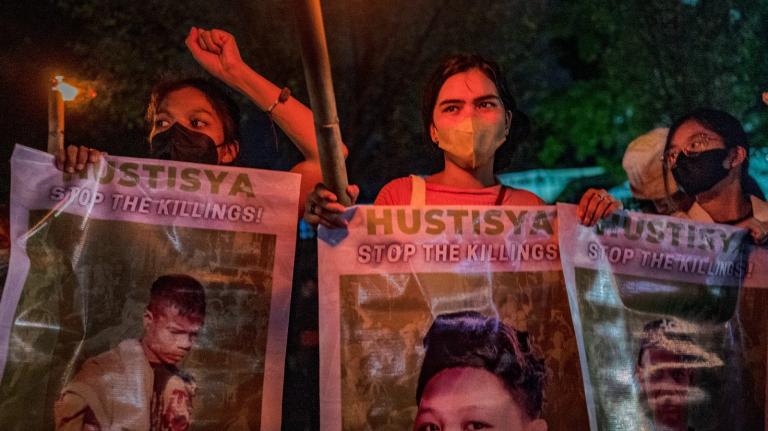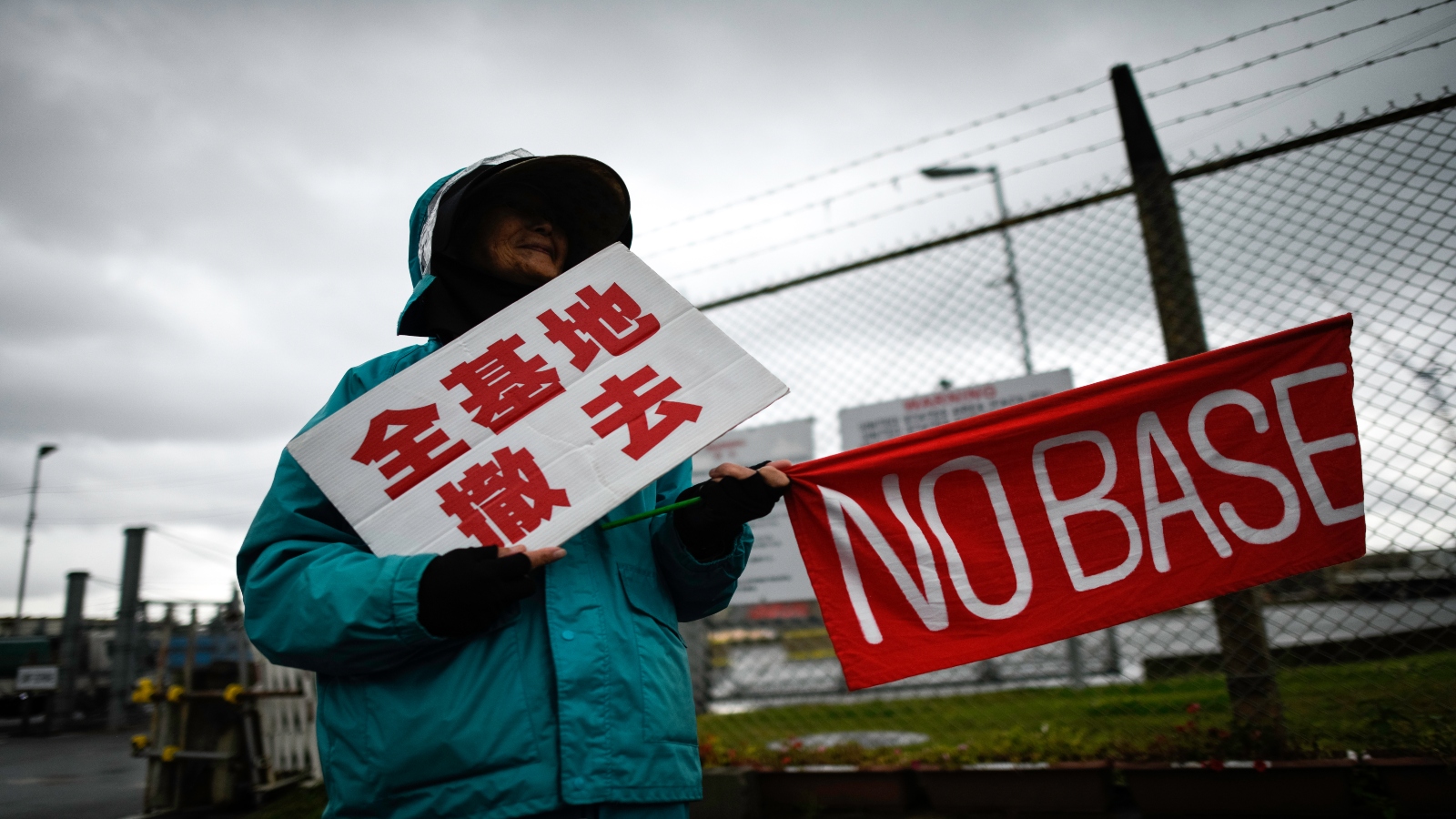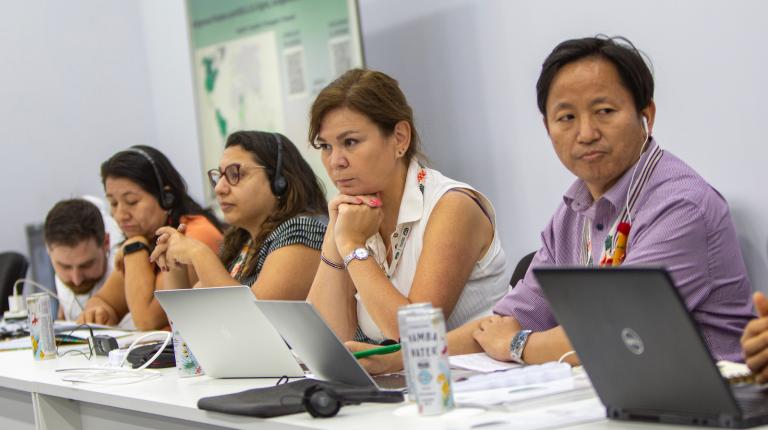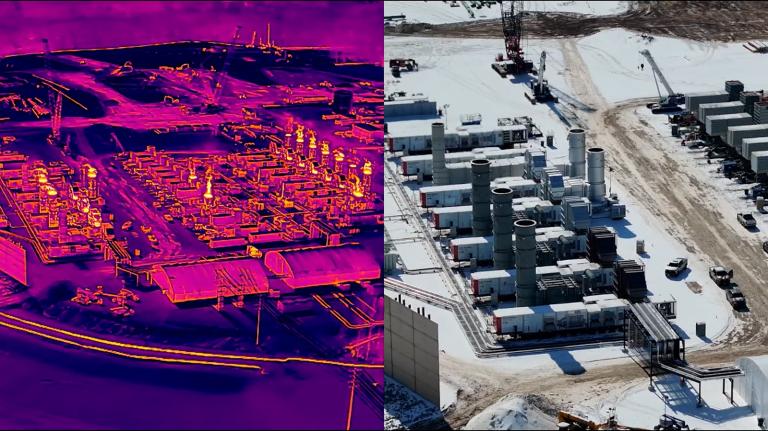This story is published as part of the Global Indigenous Affairs Desk, an Indigenous-led collaboration between Grist, High Country News, ICT, Mongabay, and Native News Online.
In April 2020, a barbecue held at Marine Corps Air Station Futenma in Okinawa, a small Japanese island just east of Taiwan, accidentally triggered the release of 60,000 gallons of firefighting foam. There was no fire, but much of the foam spread throughout the nearby residential area, sliding through streets and floating into a stream.
The foam contained per- and polyfluoroalkyl substances, or PFAS, also known as “forever chemicals.” Used in a wide variety of consumer products, PFAS have been found in air, water, and the blood streams of humans and animals across the world and can impact health causing low birth weights, cancer, and liver damage.
More than 15 percent of Okinawa is occupied by American and Japanese military bases. In 2022, water tests conducted by the government of Okinawa revealed PFAS levels up to 42 times higher than Japan’s national water standards with contamination found in drinking and bathing water for roughly 450,000 people, about a third of the island’s population. Local residents, many of whom are Indigenous Ryukyu Uchinaanchus, say the latest firefighting foam incident was another example of the harm caused by U.S. military installations on their land.
“What happened shows that they don’t care,” said Masaki Tomochi, who is Ryukyu Uchinaanchu and a professor at Okinawa International University. “They don’t care about us.”
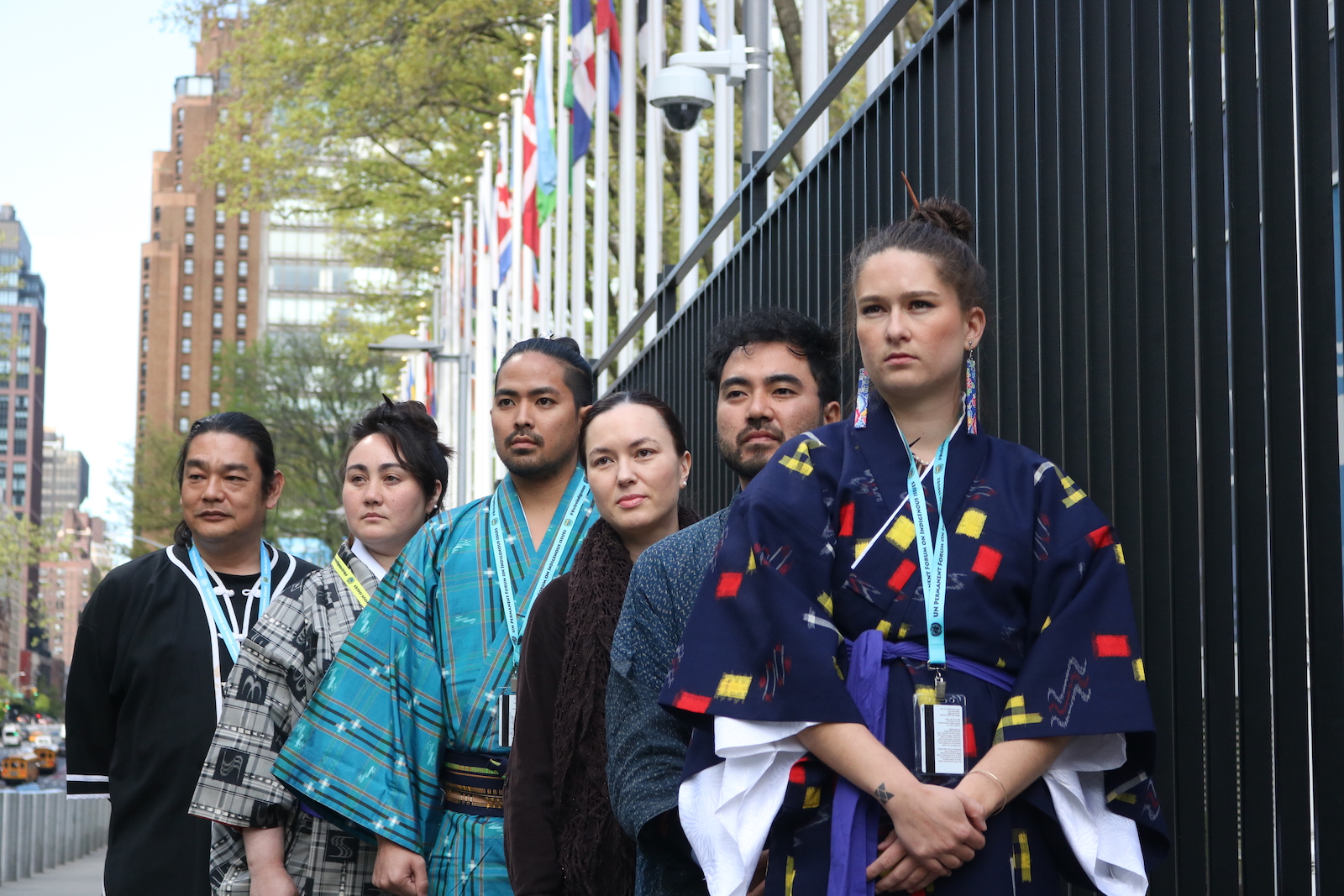
The U.S. military is building a new base on Okinawa that marine experts and the Okinawa prefectural government say could threaten marine ecosystems, including coral reefs and thousands of marine species, desecrate Ryukyuan ancestor remains, and bring even more pollution and contamination. This week, a group of Ryukyu Uchinaanchus is at the United Nations Permanent Forum on Indigenous Issues calling for urgent intervention, including the halt of construction of the new base in Henoko, release of military groundwater test data, and the closure of all 32 U.S. military bases on Okinawa. They are also demanding the recognition of their rights as Indigenous peoples, which Japan refuses to grant, despite multiple recommendations from U.N. agencies, including the Committee on the Elimination of Racial Discrimination and the Human Rights Committee to do so.
But without acknowledgement from the Japanese government, Ryukyuans have limited options. They say the United Nations is their only pathway to justice, and request that the Permanent Forum arrange a meeting between Ryukyuan leaders and Japan to talk, for the U.S. to create a chemical clean up plan, and immediately provide clean drinking and bathing water to all affected people.
“Our people have been fighting for so long,” said Koutarou Yuuji, Ryukyu Uchinaanchu and a PhD student at the University of Hawai’i at Hilo. “The bases are still there. Nothing happens.”
The independent, Indigenous Ryukyu Kingdom was annexed by Japan in 1879, when it became a prefecture in Japan’s empire. After World War Two, the United States took control of Okinawa for over twenty years, finally returning control to Japan in 1971. The agreement allowed for the U.S. military to maintain bases on the island and was made despite a movement that included violent protests by Ryukyuans for independence rather than a return to Japanese rule. Amid tensions with China, Japan and the U.S. cite Okinawa’s proximity to Taiwan as a key strategic reason for maintaining bases on the island.
“The lack of consultation with the Ryukyuan Peoples is a prime example of how neocolonial actions ignoring the Free Prior and Informed Consent (FPIC) principles can magnify existing negative circumstances and create new ones,” Permanent Forum member and Standing Rock Sioux descendant Geoffrey Roth said, referencing the international human rights standard that grants Indigenous peoples control over development projects on their land.
In 2019, Japan recognized the Ainu as Indigenous peoples, but has continued to resist Ryukyuan claims. Ryukyuans say that this is largely because acknowledging them as Indigenous would threaten Japan’s ongoing relationship with the U.S. military. “FPIC has never existed in Okinawa, especially when it comes to the U.S.,” Alexyss McClellan-Ufugusuku, a member of the Association of Comprehensive Studies for Independence of the Lew Chewans and a PhD Candidate at U.C. Santa Cruz, said.
The Ryukyuans allege that U.S. military bases contribute to a host of environmental issues, including water contamination, noise pollution, erosion, and deforestation. In 2019, 70 percent of voters said they did not support the construction of the new base. Despite the vote, construction has proceeded.
“Being able to come to the Permanent Forum allows us to advocate in a different way outside of Okinawa,” McClellan-Ufugusuku said. “It also allows us to see connections between ourselves and Indigenous peoples all around the world. We’re not the only ones with water pollution issues. We’re not the only ones with U.S. base issues.”
The United States Department of Defense and the Japanese Government did not immediately respond to a request for comment.
